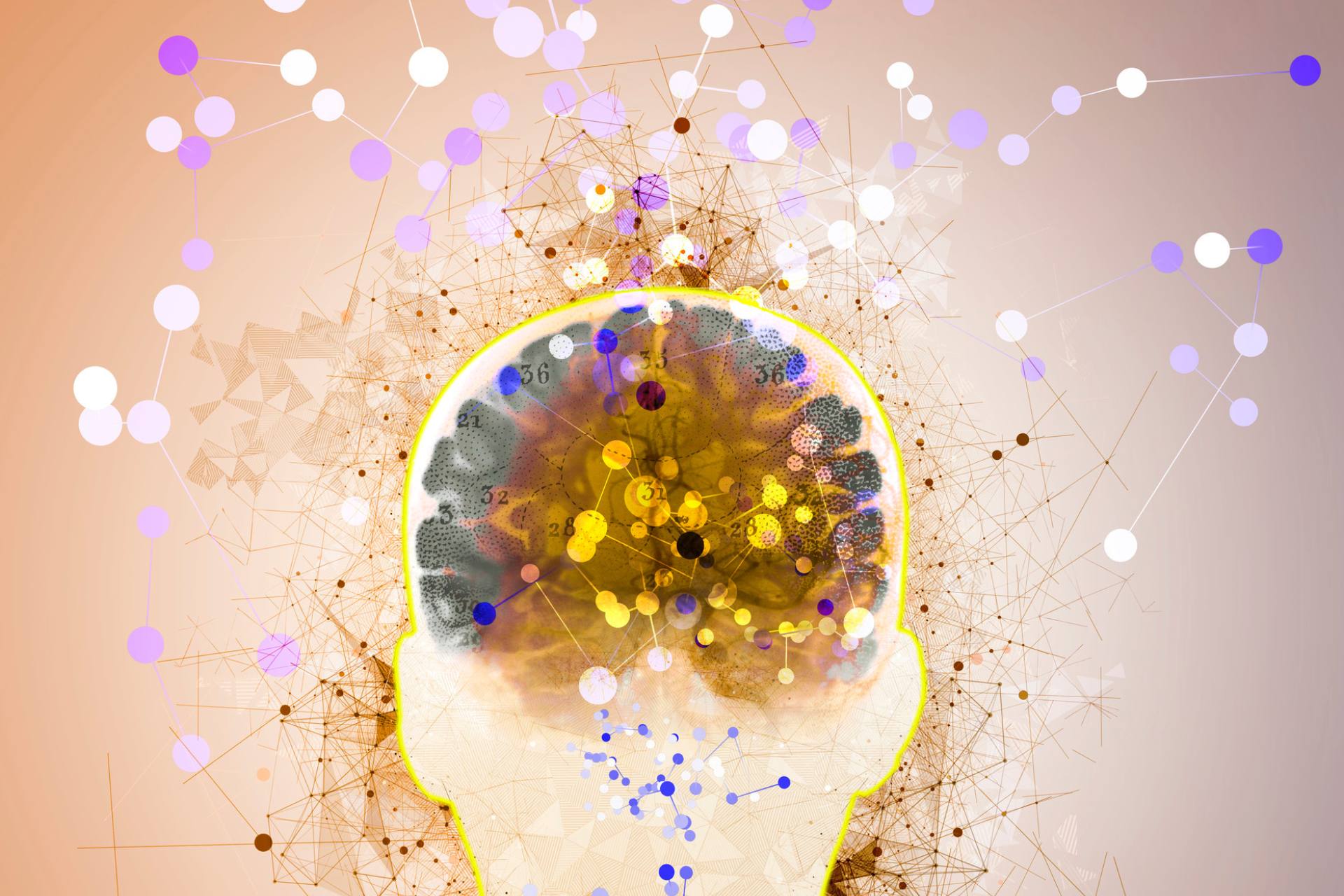Intuition is the ability to know something instinctively, without the need for conscious reasoning or evidence. Often dubbed the “sixth sense,” it’s a fascinating aspect of human cognition that influences our decisions, perceptions, and interactions with the world around us.
Intuition transcends the confines of conscious thought, offering us glimpses into insights beyond rational comprehension. It can be seen as a form of subconscious processing that draws on past experiences, emotions, and subtle cues from the environment. It’s an innate human ability that can be developed and honed through practice and self-awareness.
Intuition is a very powerful thing, more powerful than intellect, in my opinion.
Steve Jobs
1. Intuition is a form of unconscious processing
Intuition operates beneath the surface of conscious awareness, drawing upon a vast array of information stored in our minds. It’s like a silent advisor, and allows us to make quick decisions or judgments without fully understanding the reasoning behind them. This unconscious processing often accesses patterns, experiences, and knowledge accumulated over time, guiding us towards intuitive insights and actions.
2. It’s linked to emotional intelligence
Emotional intelligence – the ability to perceive, understand, and manage emotions – is closely intertwined with intuition. Individuals with high emotional intelligence tend to have strong intuitive abilities, as they are more attuned to their own emotions and those of others. This heightened awareness enhances their capacity to navigate social interactions and make empathetic decisions.
3. It’s a form of heart intelligence
intuition is often closely connected to what’s referred to as “heart intelligence.” The heart has its own complex network of neurons and neurotransmitters, often referred to as the “heart-brain” or “heart intelligence,” which communicates with the brain and influences our thoughts, emotions, and decision-making processes. This concept is supported by research in the field of neurocardiology, which explores the connection between the heart and the brain.
4. Gut feelings are a common manifestation
“Gut feelings” are visceral sensations or instincts that often accompany intuitive insights. These sensations may manifest as a sense of unease, excitement, or certainty, providing subtle cues that guide our decision-making process. Paying attention to these gut feelings can offer valuable insights into situations where logical analysis falls short.
5. Intuition is the voice of our higher self
The voice of our higher self is the deeper, more spiritual aspect of ourselves that transcends the limitations of our ego or conscious mind. When we tap into it, we’re accessing higher aspects of ourselves—the source of wisdom, guidance, and insights that exists beyond our everyday thoughts and perceptions. This higher self is often described as being connected to the universal consciousness or divine intelligence, and it serves as a guiding force in our lives.
6. Intuition is multifaceted
Intuition encompasses various dimensions, including cognitive (analytical), affective (emotional), and somatic (physical sensations) aspects. Cognitive intuition involves rapid pattern recognition and problem-solving, while affective intuition draws upon emotional cues and empathy. Somatic intuition, on the other hand, relies on bodily sensations to guide decision-making. Understanding these different facets of intuition gives a broader view of its capabilities.
7. Intuition can lead to creative insights
Intuition plays a pivotal role in the creative process, often leading to breakthroughs and innovative ideas. Bypassing conventional thinking and tapping into subconscious realms, intuition fosters novel connections and perspectives. Many artists, writers, and inventors credit intuitive insights for their most inspired creations, often called their ‘muse’ or ‘channelling creativity’.
8. It’s often associated with women
While intuition is a universal human faculty, it has often been stereotyped as a more feminine trait. Social norms regarding emotional expression and nurturing roles may contribute to this association. However, intuition knows no gender boundaries and is equally present in individuals of all genders.
9. Intuition can be influenced by body language
Non-verbal cues such as body language, facial expressions, and tone of voice convey subtle messages that can influence intuitive judgments. Paying attention to these cues enhances our ability to discern underlying emotions and intentions, providing valuable insights in interpersonal interactions.
10. It’s been studied in various fields
Intuition has captured the interest of researchers across diverse disciplines, including psychology, neuroscience, philosophy, and management. Studies exploring intuition shed light on its underlying mechanisms, cognitive processes, and real-world applications, contributing to a deeper understanding of this complex phenomenon.
11. It’s related to System 1 Thinking
Intuition shares similarities with System 1 thinking, as described by psychologist Daniel Kahneman. System 1 thinking is fast, automatic, and intuitive, relying on mental shortcuts to process information quickly. Understanding this connection helps illuminate the dual nature of our cognitive processes.
12. Intuition can be developed through mindfulness
Mindfulness practices, such as meditation and deep breathing exercises, can enhance our ability to access and trust our intuitive insights. By quieting the mind and cultivating present-moment awareness, we create space for intuition to emerge and guide us towards greater clarity and understanding.
13. It’s linked to Interoception
Interoception – the ability to sense and interpret internal bodily signals – plays a crucial role in intuitive processing. Bodily sensations such as heartbeat, breathing, and muscle tension provide valuable feedback that informs our intuitive judgments and emotional experiences.
14. Intuition can be enhanced by sleep
Quality sleep, particularly REM (rapid eye movement) sleep, is essential for consolidating memories and processing information. During sleep, the brain integrates intuitive insights gained throughout the day, leading to enhanced cognitive function and problem-solving abilities upon waking.
15. It’s influenced by past experiences
Our past experiences and learned patterns deeply influence our intuitive responses to current situations. These mental schemas serve as a reservoir of knowledge that shapes our intuitive judgments and decision-making processes, guiding us based on familiar patterns and associations.
References
- Unconscious Processing : Dijksterhuis, A., & Nordgren, L. F. (2006). A theory of unconscious thought. Perspectives on Psychological Science, 1(2), 95-109.
- Heart intelligence: McCraty, R., Atkinson, M., & Bradley, R. T. (2004). Electrophysiological evidence of intuition: Part 1. The surprising role of the heart. Journal of Alternative and Complementary Medicine, 10(1), 133-143.
- Gut Feelings : Damasio, A. R. (1996). The somatic marker hypothesis and the possible functions of the prefrontal cortex. Philosophical Transactions of the Royal Society of London. Series B: Biological Sciences, 351(1346), 1413-1420.
- Gender Differences : Voracek, M., & Dressler, S. G. (2006). Lack of correlation between digit ratio (2D: 4D) and Baron-Cohen’s “Reading the Mind in the Eyes” test, empathy, systemising, and autism-spectrum quotients in a general population sample. Personality and Individual Differences, 41(8), 1481-1491.
- Intuition and Creativity : Csikszentmihalyi, M. (1996). Creativity: Flow and the psychology of discovery and invention. Harper Perennial.
- Intuition and Decision-Making : Kahneman, D., & Klein, G. (2009). Conditions for intuitive expertise: A failure to disagree. American Psychologist, 64(6), 515-526.
- Intuition and Body Language : Ekman, P., & Friesen, W. V. (1969). The repertoire of nonverbal behavior: Categories, origins, usage, and coding. Semiotica, 1(1), 49-98.



